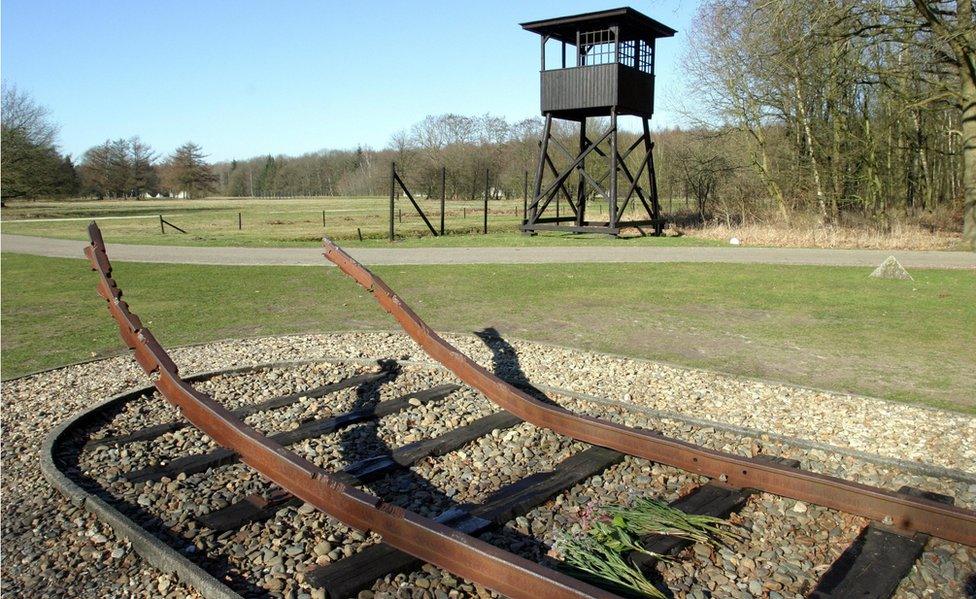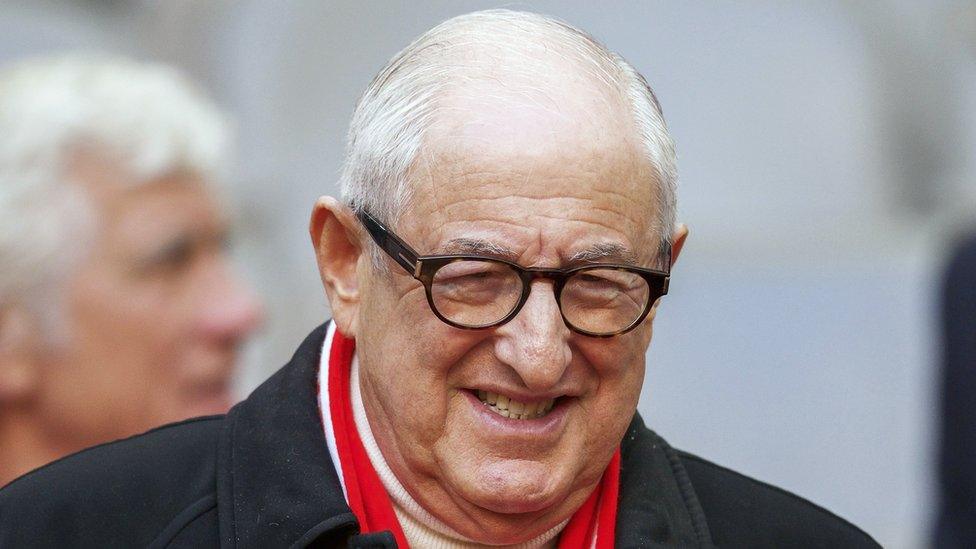Holocaust: Dutch rail firm NS confirms compensation
- Published

NS has contributed to the restoration of the museum at Westerbork camp
The Netherlands' state-run rail company NS has said it will pay tens of millions of euros in compensation to Holocaust victims and their families.
The company earned millions in today's terms by transporting Jewish families to a Nazi transit camp.
Some 107,000 Jews were taken to Westerbork and deported, mainly to deaths camps at Auschwitz and Sobibor. Only 5,000 survived.
NS said the deportations were a "black page in the history of the company".
It apologised in 2005 for its role in helping the Nazi occupiers in World War Two, but it only set up a commission to decide how much to pay in November last year.
Its decision to "learn, honour and remember in an enduring way" followed a campaign by Salo Muller, whose parents were murdered at Auschwitz.
"It is estimated that several thousand people are eligible for the allowance, including an estimated 500 survivors. NS will set aside several tens of millions of euros for this in the coming years," NS said in a statement.
Each survivor will receive €15,000 (£13,000; $17,000), while €5-7,000 will go to children and widowed spouses of victims.
What was Dutch railway's role in deportations?
NS said in November that it had operated trains on behalf of Germany's Nazi occupiers, external, but it did more than just run the trains.
"The NS complied with the German order to make trains available," Dirk Mulder from the National Westerbork Memorial told Dutch TV last year. "The Germans paid for it and said the NS had to come up with a timetable. And the company went and did it without a word of objection."
NS made an estimated €2.5m in today's terms, Dutch public broadcaster NOS estimates, in transporting Jews from across the Netherlands to the Westerbork camp.
Westerbork became a transit camp in 1941 and the first deportees left on 15 July 1942. The final train left on 13 September 1944, with 279 Jews on board. Among those deported from the camp were 245 Sinti and Roma.
Who is Salo Muller?

Salo Muller challenged the Dutch rail company after hearing of a successful campaign in the US
Salo Muller is a former physiotherapist at top Dutch football club Ajax.
In 1941, when he was five, his parents were arrested by the Nazis and put on a train from the capital Amsterdam to Westerbork, where they spent nine weeks before being deported to Auschwitz and murdered.
He decided to act when he heard that the French government had agreed a $60m compensation fund with the US to be distributed among thousands of survivors and their relatives.
- Published28 November 2018

- Published3 August 2018
